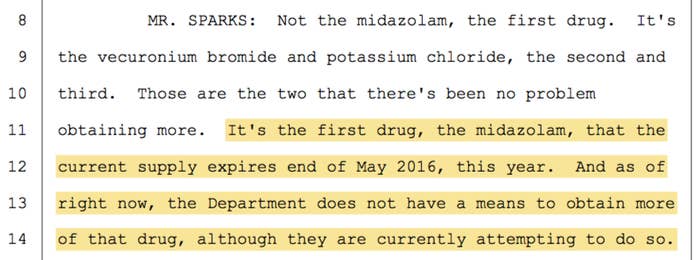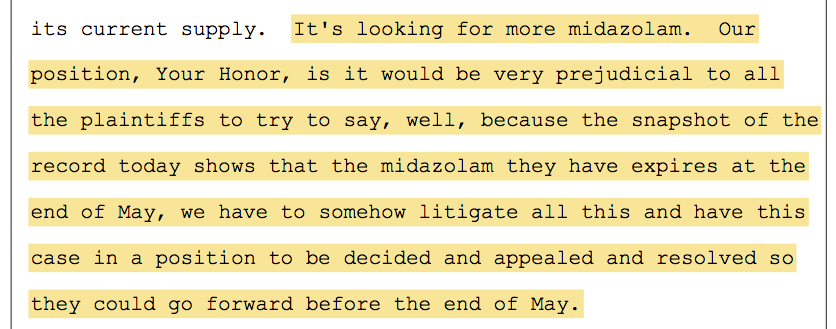Arizona is trying to carry out more executions after a brief moratorium brought about after the state carried out the longest execution in American history.
In that execution, Joseph Wood took nearly two hours to die, and witnesses reported him gasping during that time.
After the state commissioned a review, U.S. District Judge Neil Wake is allowing a lawsuit brought by five death row inmates challenging the state's new methods to go forward.
The problem for Arizona: They need the case to wrap up soon because their sedative expires at the end of May.
At a status hearing on Tuesday, Assistant Attorney General Jeffrey Sparks said the state was having problems getting more.

The judge seemed receptive to speeding up the case, saying he would be "expecting accelerated discovery."

As of yet, the inmates haven't even filed their new complaint yet — but summarized it at the hearing as asking for more transparency and asking that the second drug be removed.
The second drug in a three-drug protocol is a paralytic, and is used to cover any movement or twitching by the inmate. The inmates seem prepared to argue that it's a "cosmetic" drug used only to mask any pain the inmate may be feeling due to the other drugs.
The inmates' attorneys were only informed of the drug's expiration date on the day of the status hearing, and said the case shouldn't be in "crisis litigation" to meet the May deadline.

Five inmates brought the lawsuit, and the case would have to wrap up fairly quickly for the state to be able to execute all five of the inmates. Executions take considerable amounts of planning, and as a result, states try to space out when they occur.
In Oklahoma, for example, when the state had a 43-minute botched execution in 2014, officials and executioners there blamed scheduling two executions for one day as a big reason why things went wrong.
The state didn't offer a date to the judge on when the case would have to be wrapped up to carry out the executions, and Arizona Attorney General Mark Brnovich's office didn't respond to a request when asked by BuzzFeed News.
The shortest time frame the state has carried out five executions was in 2012. But in that case, the five executions took place over a span of five-and-a-half months.
